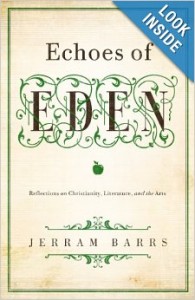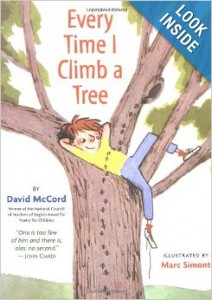We discussed the novels of Jane Austen recently in Sunday School class at my church (studying this book by Jerome Barrs), and we particularly focused on the reason for Austen’s burst in popularity in the past 20 years or so. Of course, movie and TV mini-series versions of Austen’s novels fueled the resurgence in her popularity, and Jane Austen never has really gone out of fashion. However, why do these novels, and their screen adaptations, resonate with so many readers and watchers?
Mr Barrs writes:
“Why this popularity? Is it simply the beautiful dresses that the women wear? Is it a bizarre nostalgia for romanticism? (Austen was certainly not a romantic in the technical sense of this term; in fact she attacks romanticism with great passion in Sense and Sensibility.) Is it simply an escape from the cynicism of our post-modern age? Is it a longing for manners and courtesy, for a kinder, gentler way of relating to one another in an age of culture wars? Is it a secret interest in genuine romance to replace the cultural norm of instant coupling and gratification? I mention these various options because each of them has been expressed in movie reviews and in articles about the Jane Austen ‘craze.'”
Mr. Barrs goes to suggest that the humor and character development in the books serves to make us tolerate, if not embrace, the profound moral lessons that they contain. All of these things are at least part of the truth. Some people watch the 1995 TV mini-series version of Pride and Prejudice for the costumes and the courtly manners. Others love the idea of romance in the novels, ignoring the common sense and decidedly unromantic way Austen looks at courtship and marriage in general. However, I think there’s something deeper going on in our cultural embrace of the pre-Romantic, eighteenth century norms embodied in the novels of Jane Austen.
It’s similar to what is going on in our love for The Lord of the Rings. We’ve lost the concept of “honor” in our society, yet we long for it because God made us to be honorable men and women and to attribute honor to goodness and faithfulness in both men and women. When we watch or read LOTR, we are confronted with men, elves, dwarfs, and hobbits who are above all, honorable, or at least trying to be virtuous, and we recognize the dearth of honor and virtue in our own culture.
C.S. Lewis famously wrote in his book The Abolition of Man, ““We make men without chests and expect from them virtue and enterprise. We laugh at honor and are shocked to find traitors in our midst.†He could have added that we devalue and distort the institution of marriage and the relations between men and women, and we are surprised that many young people no longer see any reason to get married or any value in the marriage relationship. However, we were made, male and female, to give ourselves in a faithful, monogamous marriage relationship, and when we see or read about a society (eighteenth century England) in which that is the norm, even if the marriages themselves and the courtship preceding them are flawed and imperfect, the word picture touches something deep within us. Women want to find an honorable man like Mr. Darcy or Mr. Knightley, who also honors and cherishes his Elizabeth Bennet or Emma Wodehouse. Men, although not as likely to read and re-read the works of Jane Austen, can also appreciate the characters of sensible, intelligent women in Austen’s novels who are nevertheless willing and even eager to enter into a lifelong commitment to one imperfect but honorable man.
I think it is because marriage is so endangered and devalued in our culture that we embrace the stories Jane Austen told. When I read The Marriage Plot by Jeffrey Eugenides a couple of years ago, I wrote of that novel’s themes, “Perhaps the idea is that we’ve reduced marriage to sexual attraction and sexual athletics, and we’ve reduced knowing God to going through the forms and expressions of religion and being good.” I wasn’t really sure what I thought about Eugenides’ novel when I read it, but his central premise that we’ve lost, or nearly lost, something valuable in our approach to love and marriage has stuck with me. Jane Austen’s novels give a glimpse of what we’ve lost, and it’s attractive and soul-satisfying, even if we don’t know exactly how to recapture the reality of the “marriage plot” we’ve lost.


